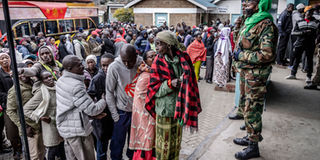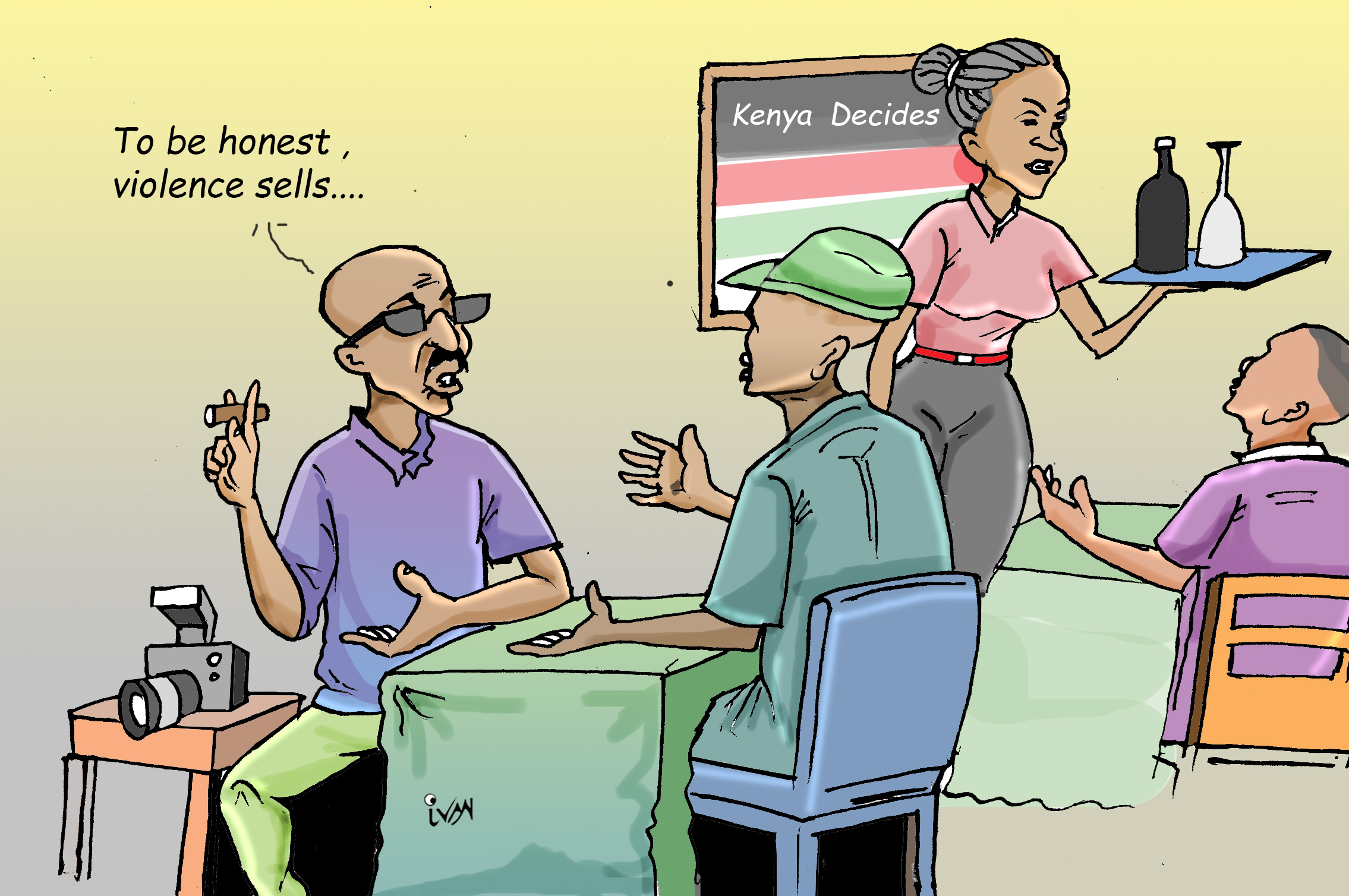We should borrow a leaf from Kenya

A group of voters wait to cast their vote at a polling station in Nairobi during Kenya’s general election on Tuesday. PHOTO / AFP
What you need to know:
- It is time to borrow a leaf from the Kenyan experiences and deliberately work to build a credible Electoral Commission and restore public confidence in electoral processes
This week, Kenya went through an admirable election process. Of course, there were hitches. There will always be, but the good outweighed the bad by far. The manner in which the Independent Electoral Boundaries Commission (IEBC) conducted the polls was commendable.
IEBC made an effort to meet its mandate of conducting an election that is free and fair; devoid of violence, intimidation, corruption and undue influences. It made an effort to be impartial and efficient. Such conduct restores public confidence in election processes and institutions.
The government of Kenya and the security agencies also conducted themselves well. They did not intermeddle in the electoral processes. There were no arrests of candidates or candidates’ agents or firing of teargas.
The conduct of the IEBC and government showed that this election was not a periodic ritual or one whose outcome would not be an expression of the will of the people. That is why Uganda just has to emulate Kenya.
It should, however, be noted that Kenya did not just get there. It worked to get to where it is and it was hard work. The loss of 1,100 people and displacement of more than 600,000 in violence that rocked it after the 2007 elections jolted the nation into soul-searching and the realisation that reforms were a must. Uganda cannot wait until violence of a magnitude similar to that breaks out.
The reforms that President Museveni promised in his 2014 State-of-the-Nation address to deliver “within a year” have never come even when the promise came 16 years after some progressive reforms that would have possibly improved the electoral framework and future elections by possibly fixing electoral deficits that had plagued previous elections had been put forward.
Civil society and the European Union had been calling for making of the procedure of appointing the Electoral Commission (EC) more competitive and participatory, with civil society and the public involved in the selection of commissioners.
The argument remains that Mr Museveni should not be the one hiring teams to organise elections in which he is a player. That makes a lot of sense. Government’s refusal to take the high road has come with significant implications for the growth of our democracy.
It is time to borrow a leaf from the Kenyan experiences and deliberately work to build a credible EC and restore public confidence in electoral processes. That is not out of the reach of Mr Museveni and ruling National Resistance Movement party. They only have to choose to take the high road.




